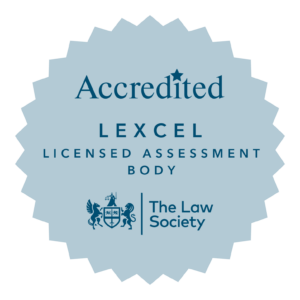Section 117 Aftercare and Tinsley v Manchester City Council & Ors [2017] EWCA Civ 1704
This article discusses the legal provisions surrounding mental health aftercare for previously detained patients and how there are some disparities in the law. The provision of aftercare was recently considered by the court of appeal and this case will be discussed below.
Legal Provisions for Aftercare
Section 117 of the Mental Health Act 1983 creates an aftercare duty for any persons who are detained under section 3, section 37, section 47 or section 48 of the Act and cease to be detained. Section 117 (2) provides that the duty falls on the Clinical Commissioning Group or Local Health Board and local social services authority, who are obligated to provide or arrange the provision of aftercare services.
The duty to provide these services expires when the Clinical Commissioning Group, Local Health Board or local social services authority are satisfied that the person is no longer in need of such services.
Section 117 (6) of the Mental Health Act states that relevant after-care services “in relation to a person, means services which have both of the following purposes-
(a) Meeting a need arising from or related to the person’s mental disorder; and
(b) Reducing the risk of a deterioration of the person’s mental condition (and, accordingly, reducing the risk of the person requiring admission to a hospital again for treatment for mental disorder.”
Section 47 of the National Health Service and Community Care Act 1990 provides that if a person may be in need of section 117 services then “the authority:
(a) Shall carry out an assessment of his needs for those services; and
(b) Having regard to the results of that assessment, shall then decide whether his needs call for the provision by them of any such services.”
Who is liable to provide aftercare?
Reading section 117 Mental Health Act 1983 together with Section 47 of the National Health Service and Community Care Act 1990 seems to dilute the duty of the authority to provide the aftercare services, as it allows a subjective element to the test for services. “Deciding whether his needs call for the provision…of any such services” allows substantially more leeway in application than “meeting a need arising from or related to the person’s mental disorder”. The restatement in the 1990 Act appears to allow the authority to circumvent their duty as there is no statutory scale for deciding “whether…needs call for the provision” and gives a margin of appreciation on behalf of the local authority to decide whether the needs are sufficient to warrant provision. The MHA 1983 requires the meeting of a need, rather than a subjective decision on whether a need is sufficient for aftercare services.
Tinsley v Manchester City Council & Ors
Section 117 aftercare and Section 47 of the Care Act were discussed in the recent case of Tinsley v Manchester City Council & Ors [2017] EWCA Civ 1704, heard by the Court of Appeal. The claimant in this case, Mr Tinsley, had been previously detained under section 3 of the Mental Health Act 1983. The claimant’s mental disorder arose from a road traffic accident for which he received damages in a separate court case (Tinsley v Sarkar [2005 EWHC 192). A large portion of the damages awarded were given in order to pay for future, private care. In the case the defendant argued he should not be liable for future care because of the duty under section 117 for provision of aftercare services.
The claimant left the authority funded nursing home following the 2005 judgment and has since funded his own accommodation and aftercare. It since came to light that the claimant is unable to continue funding his current care arrangements from the damages he was awarded. As such, the claimant sought to require Manchester City Council, as the local social services authority, to provide section 117 aftercare duties.
The decision referred to R v Manchester City Council ex parte Stennett [2002] 2 AC 1127, where the House of Lords held that relevant authorities could not charge for the provision of aftercare services, agreeing with the Buxton LJ in the Court of Appeal in the same case who stated that it would be “surprising” if persons had to pay for section 117 aftercare as it is “essentially a health-related form of care and treatment.”
The distinguishing feature between ex parte Stennett and Tinsley are the availability of personal injury damages in the latter. If the Care Act were applicable without the Mental Health Act then Mr Tinsley’s damages would be required to be taken into account pursuant to the Care Act 2014 and the Care and Support (Charging Assessment of Resources) Regulations 2014 (Regulation 18 SI2014/2672). However, the Mental Health Act does not require an individual means assessment in regard to section 117 aftercare services, and payment for such services would be “surprising” as per Buxton LJ.
As such, in Tinsley the Court of Appeal had to decide whether to read the Care Act 2014 alongside the Mental Health Act 1983. Manchester City Council argued for the acts to be read together to discharge the local authority’s financial liability for provision of section 117 aftercare services where a person has been awarded damages to fund care, submitting that two sources of funding offends the principle of double recovery. The claimant successfully argued for a separation of the two acts, in light of Stennett and because the Mental Health Act 1983 should be read separately.
As Stennett said that charging for section 117 aftercare is impermissible, the Court of Appeal accepted that refusing to pay for services is the same as providing for services but charging for them. Thus, the refusal to pay for the services is impermissible.
The Court of Appeal took particular care to distinguish section 117 aftercare from other aftercare provisions. It also differentiated damages awarded and administered by the Court of Protection. These damages have been held by the court in Crofton v NHSLA [2007] EWCA Civ 71 to disregard damages administered by the Court of Protection at both the threshold level and the means assessment. The local authority can therefore not take into account these specific damages.
Section 117 aftercare duties were also noted to be imposed on both local authorities and clinical commissioning groups. Clinical commissioning groups cannot charge for their services or take into account means when providing services, therefore they cannot charge for section 117 aftercare services.
Lord Justice Longmore stated in Tinsley at paragraph 32 that “to decide that a local authority is not obliged to provide after-care services would not be to promote the interests of the patient.”
Conclusion
The question remains whether there will be an appeal on this matter. Furthermore, it is unclear whether the provision of section 117 aftercare services could become completely non-means tested. The Court of Appeal implies that regardless of the award of damages administered by the Court of Protection, section 117 aftercare duties should be provided for and paid for by the authorities.
Section 117 aftercare is provided to previously detained persons in order to facilitate their transition out of hospital and to meet their needs in the community. It is important that this is protected as successful aftercare can prevent relapse and subsequent re-hospitalisation. Tinsley and other cases point towards the courts continuing to protect this important provision.
Article by Philippa Wheeler paralegal to Chuma Oraedu


